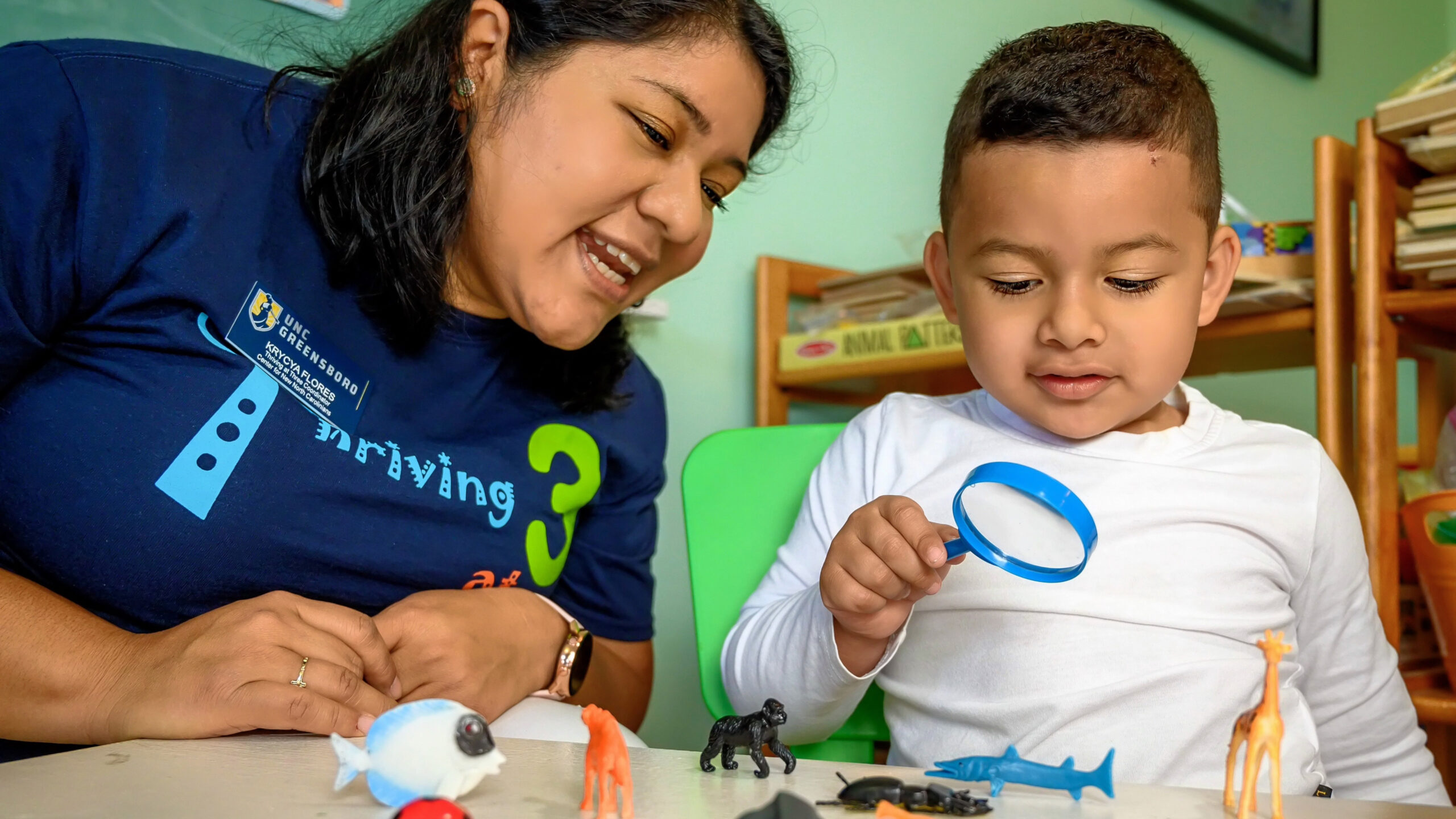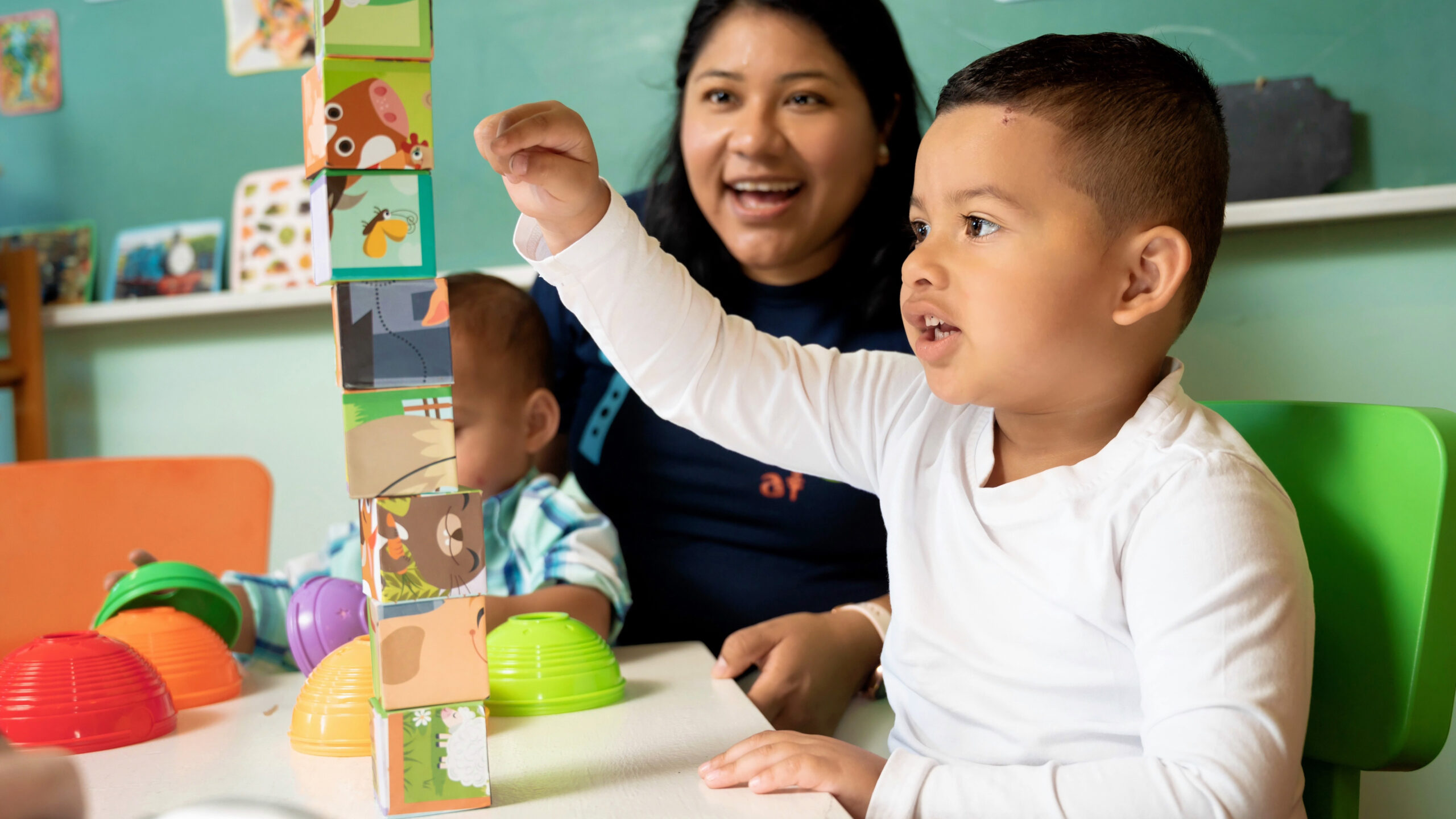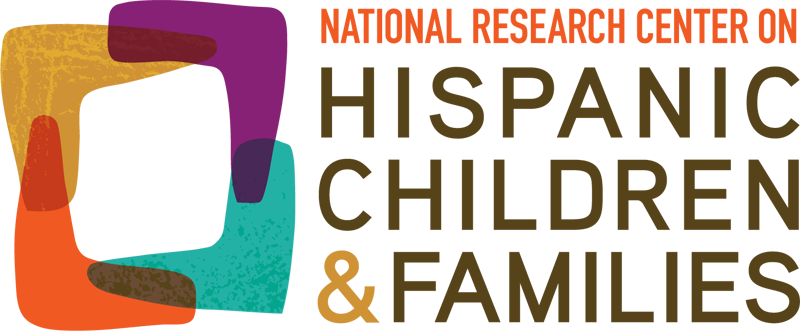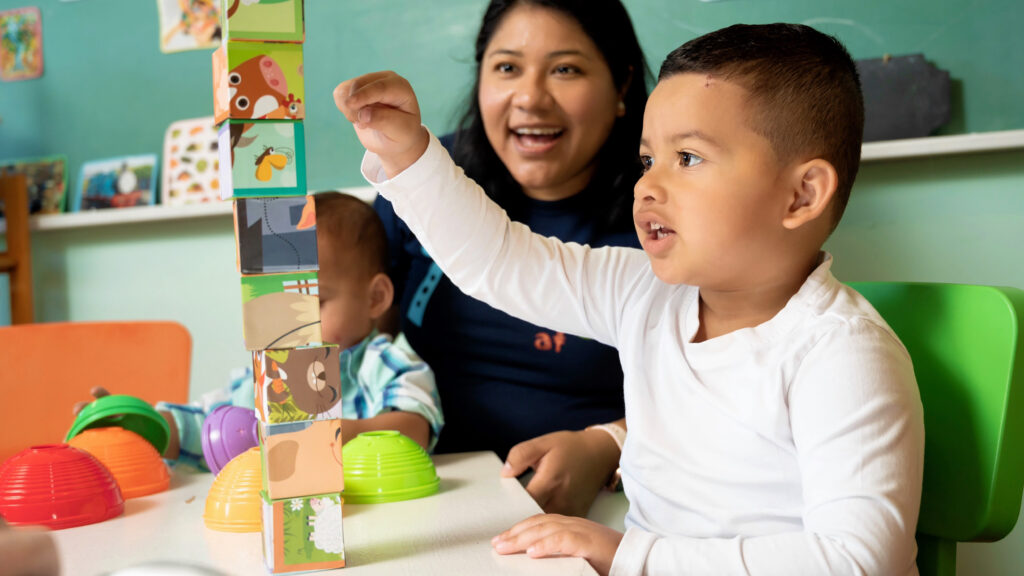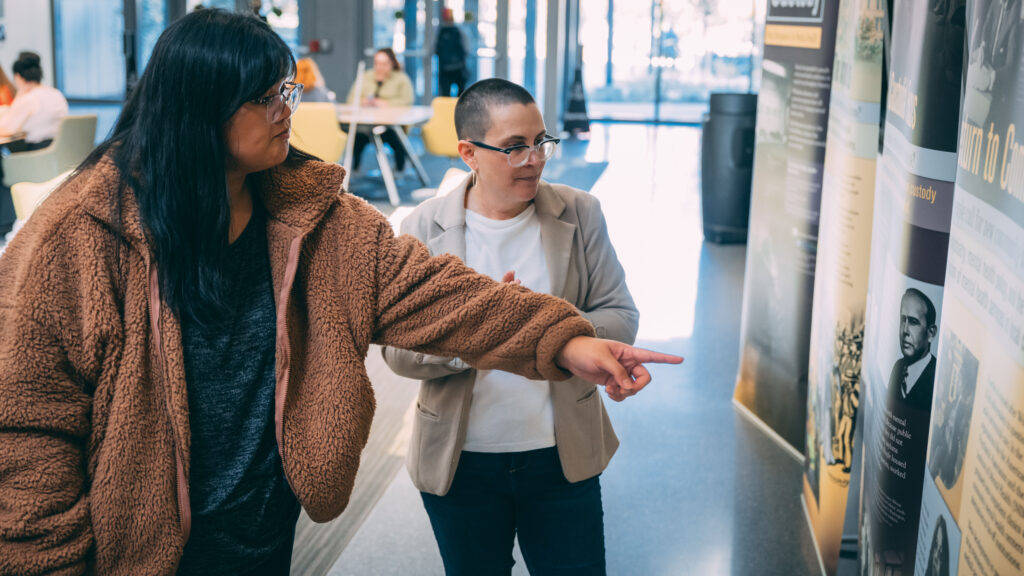A new brief by UNC Greensboro’s Dr. Julia Mendez and Dr. Danielle Crosby reflects ten years of research on how low-income Latine and Hispanic families access early childcare education. Some of their findings raise concerns about recent federal efforts to make childcare more affordable.
Mendez and Crosby lead the early childhood care and education research arm of the National Research Center on Hispanic Children and Families. For over a decade, they have gathered knowledge on the strengths and needs of Latine families to determine how federal programs and policies can better serve this community. “More than 25% of U.S. children are Latine or Hispanic, so this information is critical,” says Crosby, an associate professor of human development and family studies.
The good news, the researchers say, is that Latine families access early child care and education at similar rates as most other ethnic groups in the United States. The bad: across all demographics, families often struggle to find affordable care options that meet their needs. In 2019, the use of non-parental care hovered around just 50%.
“Early child care is critical for a child’s development and for a parent’s ability to provide economic security for their family,” says Mendez, who is a clinical psychology professor. “For Latino children, many of whom are dual-language learners, high-quality care is essential for language development, social interaction, and other core benefits that put kids on their best path to kindergarten.”

The U.S. Department of Health and Human Services established the National Research Center on Hispanic Children and Families in 2013. The nonprofit Child Trends spearheads the center’s work in partnership with UNCG, Duke University, and the University of Maryland, College Park.
“Latino children are disproportionately affected by poverty, yet before the center was founded, there wasn’t much information about what challenges Latino families face with access to child care,” says Crosby.
“We’ve aimed to better understand the landscape for low-income Hispanic families and to find the most effective ways to connect this group with accessible and affordable child care and education.”
Major findings
The researchers identified key challenges related to affordability, accessibility, and how early child education addresses the needs of Latine children and parents. They discovered a number of mismatches between what would best serve Latine families and what the landscape of early child care offers.
Policy implications
Child care subsidies could make a huge difference for low-income Latino families, but this vital federal investment isn’t reaching this population in many states. Policy changes to address this shortfall are on the horizon, but the researchers are concerned they will not be implemented fast enough and that, without additional investments, states cannot fully implement needed changes.

In February 2024, the U.S. Department of Health and Human Service’s Office of Child Care rolled out new regulations that will require states to limit out-of-pocket childcare costs to 7% of the household income of families receiving subsidies. However, states can waive this requirement for two years, and many are doing so.
Mendez and Crosby’s data underscore the urgent need for action: Nearly one in four Latine households are currently funneling more than 20% of their total income into child care.
Funding gaps, the researchers say, translate to children missing out on care at a critical stage of life, potentially impacting their life trajectories.
They outline several recommendations for policymakers and providers to help Latine families get the resources they need to raise their children while engaging with work experiences that produce economic security and mobility. These include reducing the administrative burden on families seeking subsidized child care, publishing application materials and information in the languages they speak, and expanding the hours of child care centers.
Building a better future
“We need more research and enhanced policies to ensure equitable access to affordable, high-quality care for Latino families,” says Mendez. “And we must build and foster an early child education system that’s equitable and culturally-responsive, so Latino children can thrive.”
Recently, center researchers received $5 million dollars in additional funding, with $550,000 goint to UNCG efforts, to continue their research and policy work for another 5-year cycle.
Story by Emily Halnon
Lead photography by Martin W. Kane, University Communications, from the UNCG Thriving at Three program
